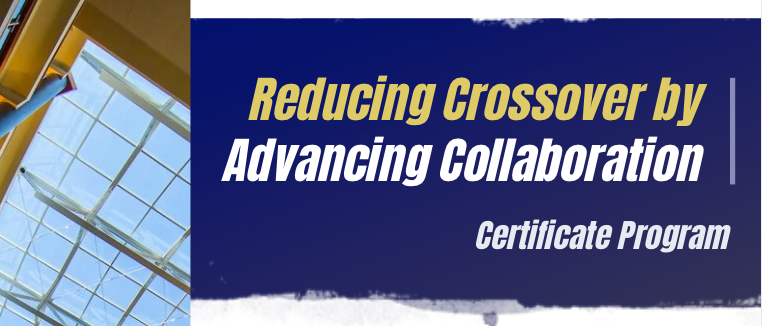Overcome Silos, Reduce Crossover, and Advance Effective and Efficient Care for Youth

Posted in Announcements News
Youth-serving systems—including child welfare, youth justice, education, and behavioral health—tend to operate in silos, making coordination of care for youth involved in multiple systems difficult at best for both the youth and those providing care. These systems also often lack the trauma-informed, holistic care that meets these youth’s complex behavioral and emotional needs. Given these challenges, a coordinated, cross-system approach is essential, and can lead to greater system efficiency and positive outcomes.
Our new Reducing Crossover by Advancing Collaboration Certificate Program addresses the unique challenges faced by dual system or crossover youth. Built upon more than a decade of practical, in-depth experience from the nationally-recognized Crossover Youth Practice Model, the Reducing Crossover by Advancing Collaboration (RCAC) Certificate Program will be held May 6 through May 8 at Georgetown University’s beautiful new Capitol Hill campus.
Through an interactive curriculum led by experts in the field, participants will engage with cutting edge ideas, policies, and practices from across the country. Teams and individuals will also receive guidance on how to use their learning to develop an action plan (Capstone Project) and lead system transformation efforts in their organizations, communities, and professions. This includes one-on-one technical assistance on the Capstone Project from national experts.
This program is not limited to those just beginning to collaborate across systems. Communities currently engaging in cross-system work can also benefit, using this Certificate Program to refine their strategies, strengthen partnerships, and build on existing initiatives. Through a blend of expert-led workshops, collaborative activities, and applied learning exercises, participants deepen their understanding of the systemic changes needed to improve outcomes for dual-system/crossover youth and their families, regardless of their starting point.
Applications, which can be found on our Reducing Crossover by Advancing Collaboration page, are now open through February 21, 2025.
